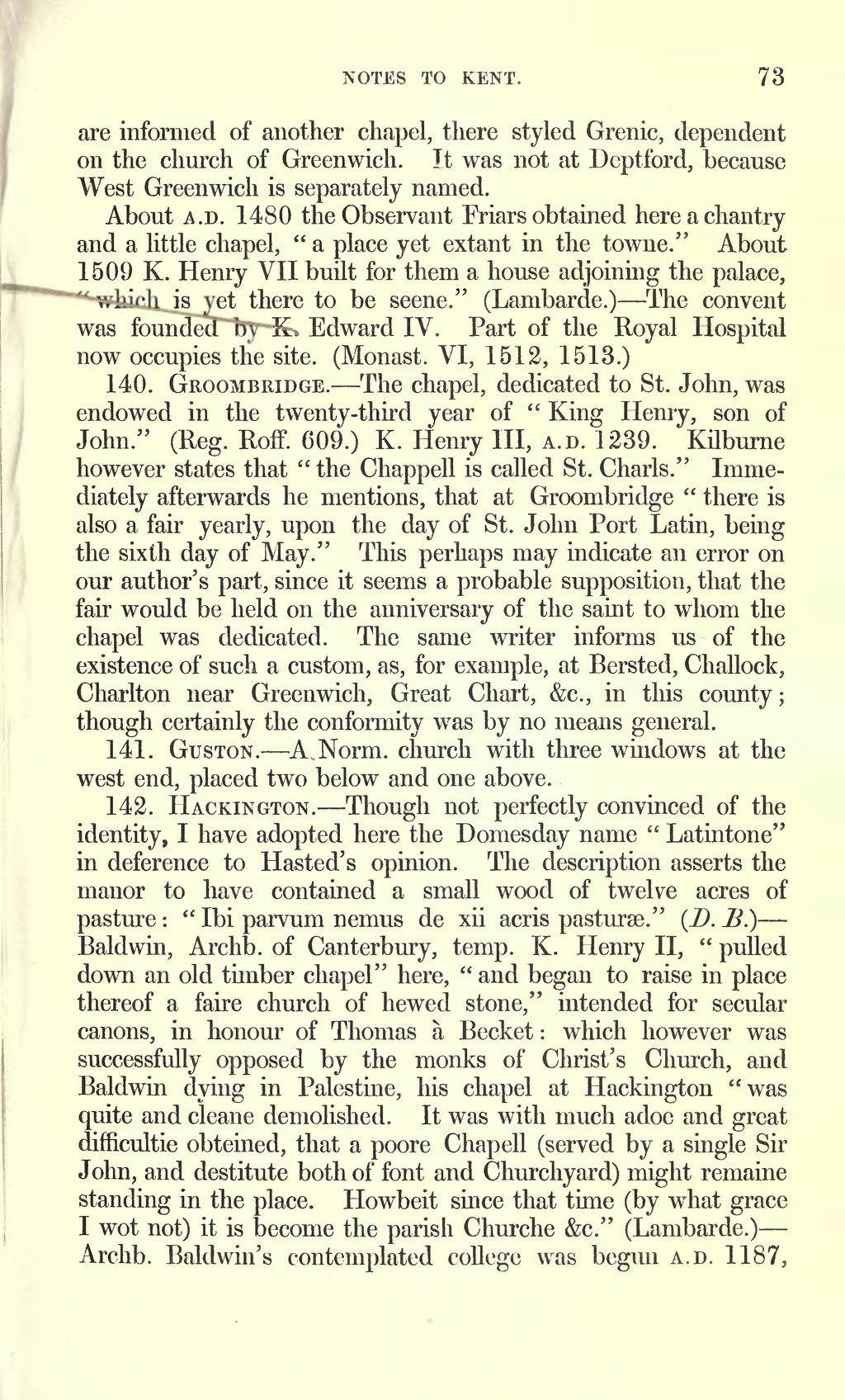are informed of another chapel, there styled Grenic, dependent on the church of Greenwich. It was not at Deptford, because West Greenwich is separately named.
About a.d. 1480 the Observant Friars obtained here a chantry and a little chapel, "a place yet extant in the towne." About 1509 K. Henry VII built for them a house adjoining the palace, "which is yet there to be seene." (Lambarde.)—The convent was founded by K. Edward IV. Part of the Royal Hospital now occupies the site. (Monast. VI, 1512, 1513.)
140. Groombridge.—The chapel, dedicated to St. John, was endowed in the twenty-third year of "King Henry, son of John." (Reg. Roff. 609.) K. Henry III, a.d. 1239. Kilburne however states that "the Chappell is called St. Charls." Immediately afterwards he mentions, that at Groombridge "there is also a fair yearly, upon the day of St. John Port Latin, being the sixth day of May." This perhaps may indicate an error on our author's part, since it seems a probable supposition, that the fair would be held on the anniversary of the saint to whom the chapel was dedicated. The same writer informs us of the existence of such a custom, as, for example, at Bersted, Challock, Charlton near Greenwich, Great Chart, &c., in this county; though certainly the conformity was by no means general.
141. Guston.—A. Norm. church with three windows at the west end, placed two below and one above.
142. Hackington.—Though not perfectly convinced of the identity, I have adopted here the Domesday name "Latintone" in deference to Hasted's opinion. The description asserts the manor to have contained a small wood of twelve acres of pasture: "Ibi parvum nemus de xii acris pasturse." (D. B.)—Baldwin, Archb. of Canterbury, temp. K. Henry II, "pulled down an old timber chapel" here, "and began to raise in place thereof a faire church of hewed stone," intended for secular canons, in honour of Thomas à Becket: which however was successfully opposed by the monks of Christ's Church, and Baldwin dying in Palestine, his chapel at Hackington "was quite and cleane demolished. It was with much adoe and great difficultie obteined, that a poore Chap ell (served by a single Sir John, and destitute both of font and Churchyard) might remaine standing in the place. Howbeit since that time (by what grace I wot not) it is become the parish Churche &c." (Lambarde.)—Archb. Baldwin's contemplated college was begun a.d. 1187,
